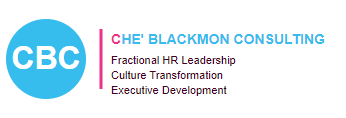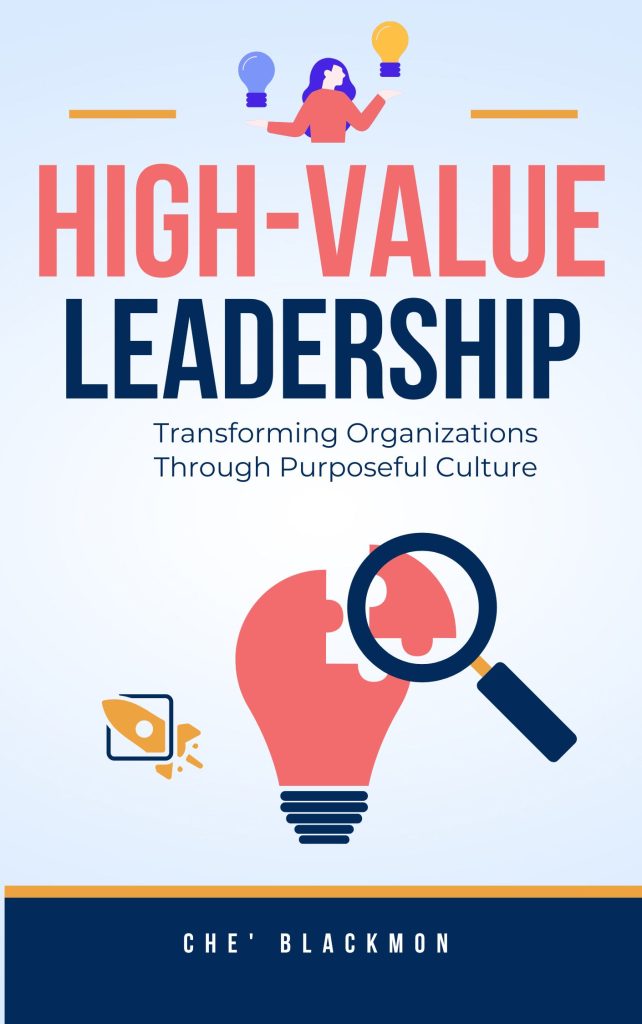“Trust takes years to build, seconds to break, and forever to repair.” – Unknown
The email hit my inbox at 3:47 PM on a Tuesday. A Fortune 500 company—one that had just made headlines for a massive ethical breach—wanted help. Their ask was simple yet monumental: “Can you help us rebuild trust?”
As I sat with their leadership team weeks later, the damage was palpable. Employee engagement had plummeted 67%. Their stock price had dropped 40%. But the most telling statistic? Of the Black women in their leadership pipeline, 82% were actively interviewing elsewhere.
When organizations fail, trust doesn’t just crack—it shatters. And the shards cut deepest for those who already navigate workplace relationships with heightened vigilance.
The Anatomy of Broken Trust: Why Some Wounds Run Deeper
In “Mastering a High-Value Company Culture,” I emphasized that culture is built on trust. When that foundation crumbles, the entire structure becomes unstable. But here’s what most recovery plans miss: trust breaks differently for different people.
The Disproportionate Impact on Traditionally Overlooked Talent
When organizational trust fails, Black women and other traditionally overlooked employees experience what I call “trust bankruptcy”—a complete depletion of the already limited trust reserves they’ve carefully rationed throughout their careers.
Consider these compounding factors:
- Historical Context: We enter organizations with inherited mistrust from generations of broken promises
- Higher Stakes: One breach confirms what we’ve been warned about but hoped wasn’t true
- Limited Safety Nets: Fewer sponsors and allies mean less protection during turbulent times
- Representation Burden: We face pressure to stay and fix what we didn’t break
- Career Risk: Leaving looks like “not being a team player,” staying looks like complicity
Case Study: After a major pharmaceutical company’s discrimination lawsuit became public, their Black women employees reported feeling “vindicated but violated.” The breach confirmed their experiences while destroying their hope for change. Within six months, they lost 73% of their Black female talent—taking with them critical institutional knowledge and innovation capacity.
The Trust Equation: Understanding What’s Really Broken
Drawing from research by Stephen M.R. Covey and validated through my consulting work, organizational trust operates on four dimensions:
Trust = (Credibility + Reliability + Intimacy) / Self-Orientation
When organizations fail, they typically damage all four:
- Credibility: “Do they know what they’re doing?”
- Reliability: “Can I count on them?”
- Intimacy: “Do they care about me?”
- Self-Orientation: “Are they only looking out for themselves?”
For Black women, each dimension carries additional weight:
- Credibility includes: “Will they acknowledge systemic issues?”
- Reliability means: “Will they follow through on DEI commitments?”
- Intimacy asks: “Do they see me as fully human?”
- Self-Orientation questions: “Am I just a diversity metric?”
The RESTORE Framework: A Path Back to Trust
Through guiding dozens of organizations through trust rebuilding, I’ve developed a framework that addresses both universal and unique trust restoration needs:
R – Recognize with Radical Honesty
Acknowledgment must be specific, not sanitized.
Effective Recognition Includes:
- Name what happened without euphemisms
- Acknowledge who was harmed and how
- Accept responsibility without deflection
- Validate the experiences of those most impacted
The Overlooked Perspective: Black women need recognition that goes beyond the immediate failure to acknowledge systemic patterns. “This incident” is rarely isolated—it’s usually part of a continuum.
Example: When a tech company faced backlash for pay discrimination, their CEO didn’t just address the wage gaps. She acknowledged: “This reflects a pattern of undervaluing Black women’s contributions that goes back to our founding. The recent audit simply quantified what many of you have experienced for years.”
E – Engage in Deep Listening
Trust rebuilding requires hearing truths you’d rather avoid.
Deep Listening Strategies:
- Create multiple feedback channels (anonymous and attributed)
- Host listening sessions by affinity groups
- Bring in external facilitators for psychological safety
- Document what you hear without editing
- Share back what you learned transparently
As I detailed in “Rise & Thrive,” Black women are often the truth-tellers organizations need but don’t want to hear. In trust rebuilding, their voices are your early warning system.
S – Strategize with Stakeholder Input
Solutions imposed from above fail. Co-created solutions succeed.
Inclusive Strategy Development:
- Include traditionally overlooked voices in solution design
- Compensate people for emotional labor
- Create decision-making transparency
- Build in accountability mechanisms
- Set measurable milestones
Critical Insight: Black women should be strategy partners, not just feedback providers. Their dual consciousness—seeing organizations from both inside and outside—provides invaluable perspective.
T – Take Swift, Visible Action
Trust rebuilds through consistent action, not grand gestures.
Action Priorities:
- Immediate: Stop the bleeding (policy changes, personnel decisions)
- Short-term: Demonstrate commitment (resource allocation, structural changes)
- Long-term: Embed new practices (system redesign, culture shift)
Real-World Impact: A financial services firm facing trust crisis made their first visible action promoting a Black woman to Chief Ethics Officer—not as tokenism, but recognizing her track record of speaking truth to power. She was given real authority, budget, and a direct line to the board.
O – Operationalize New Standards
Prevent future failures by changing systems, not just behaviors.
Systemic Changes Required:
- Embed trust metrics in performance reviews
- Create psychological safety protocols
- Build early warning systems
- Reward truth-telling, not just harmony
- Make trust everyone’s responsibility
From “High-Value Leadership”: Systems drive behaviors. If you want trustworthy behavior, build trustworthy systems.
R – Repair Relationships Individually
Organizational trust rebuilds one relationship at a time.
Relationship Repair Strategies:
- Leaders personally apologize to those harmed
- Managers have one-on-one trust conversations
- Teams create new working agreements
- Individuals commit to new behaviors
- Everyone takes ownership of trust building
The Extra Mile for Overlooked Talent: Recognize that Black women often need to see sustained change before re-engaging. Don’t mistake professional courtesy for restored trust.
E – Evaluate and Evolve Continuously
Trust rebuilding never ends—it evolves.
Ongoing Evaluation Includes:
- Regular trust assessments
- Continuous feedback loops
- Adjustment based on results
- Celebration of progress
- Acknowledgment of setbacks
- Commitment to permanent vigilance

Current Trends in Trust Restoration
Based on recent research and Dave Ulrich’s work on stakeholder value, modern trust rebuilding involves:
1. From Internal to Ecosystem Trust
Organizations now rebuild trust across entire stakeholder networks—employees, customers, communities, investors—recognizing interconnected impact.
2. From Words to Measurable Actions
Trust rebuilding includes specific metrics:
- Employee trust scores by demographic
- Customer confidence indicators
- Community partnership health
- Investor relations stability
3. From Crisis Response to Proactive Trust Building
Leading organizations build trust reserves before they need them through:
- Regular trust audits
- Preemptive issue addressing
- Transparent communication norms
- Failure acknowledgment cultures
4. From Homogeneous to Inclusive Trust Strategies
Recognition that different groups need different trust rebuilding approaches based on their historical and current experiences with the organization.
The Trust Rebuild Playbook: Your 180-Day Roadmap
Days 1-30: Truth and Reconciliation
Week 1-2: Leadership Reckoning
- Leadership team acknowledges failure privately
- Prepare for public acknowledgment
- Begin internal listening tour
- Halt any ongoing harmful practices
Week 3-4: Organization-Wide Truth Telling
- Public acknowledgment of failure
- Open forums for employee input
- External investigation if needed
- Document all feedback received
Days 31-90: Strategy and Structure
Month 2: Co-Create Solutions
- Form diverse trust rebuild task force
- Design new policies and practices
- Allocate resources for change
- Create accountability mechanisms
Month 3: Begin Implementation
- Launch quick wins
- Communicate progress transparently
- Address resistance directly
- Celebrate early adopters
Days 91-180: Embed and Evolve
Month 4-5: Systemic Changes
- Implement structural reforms
- Train all leaders in trust building
- Create ongoing feedback systems
- Measure progress consistently
Month 6: Evaluate and Adjust
- Conduct trust assessment
- Adjust strategies based on data
- Plan for continuous improvement
- Commit to long-term vigilance
Special Considerations for Black Women Leaders
If you’re a Black woman leading or participating in trust rebuilding:
- Your skepticism is wisdom—don’t let others gaslight your valid concerns
- Your emotional labor has value—negotiate compensation for extra work
- Your truth-telling is service—even when it’s uncomfortable for others
- Your boundaries are necessary—you can’t heal what you didn’t break
- Your leadership is essential—but not at the cost of your wellbeing
As I shared in “Rise & Thrive,” we must be strategic about when and how we invest our trust. Organizational failure often validates our caution while simultaneously demanding our leadership in healing.
Measuring Trust Restoration Success
Traditional metrics miss trust’s complexity. Comprehensive measurement includes:
Quantitative Metrics:
- Employee trust scores (segmented by demographics)
- Retention rates of traditionally overlooked talent
- Speak-up culture indicators
- Psychological safety assessments
- Ethics hotline usage patterns
Qualitative Indicators:
- Story changes in organization narrative
- Shift in water cooler conversations
- Energy in meetings
- Innovation levels
- Cross-functional collaboration quality
The Black Women’s Trust Index™: I’ve developed a specific metric focusing on Black women’s trust levels as a leading indicator of organizational health. When Black women trust your organization, you’ve likely created an environment where everyone can thrive.
The Compound Effect of Trust Rebuilding
When done right, trust rebuilding creates unexpected benefits:
- Stronger Culture: Phoenix cultures often surpass pre-crisis levels
- Innovation Boost: Psychological safety drives creative risk-taking
- Talent Magnet: Authentic recovery attracts purpose-driven talent
- Market Advantage: Trusted organizations outperform competitors
- Social Impact: Healing creates ripples beyond organization walls
Most importantly, successfully rebuilding trust after failure demonstrates that transformation is possible—a powerful message for all stakeholders.
Discussion Questions for Trust Rebuilding
- Where has your organization broken trust, and who was most impacted?
- How might traditionally overlooked employees’ perspectives transform your trust rebuilding approach?
- What systems need to change to prevent future trust breaches?
- How can you measure trust restoration beyond traditional engagement surveys?
- What would it take for you personally to trust again after organizational failure?
Your Next Steps to Trust Restoration
- Assess your organization’s current trust levels using the trust equation
- Identify which stakeholder groups have the lowest trust and why
- Engage traditionally overlooked voices in solution design
- Design one concrete action to demonstrate commitment this week
- Commit to the long journey of trust rebuilding
Ready to Rebuild Trust That Lasts?
Trust rebuilding after organizational failure isn’t just about damage control—it’s about emerging stronger, more inclusive, and more resilient than before. But it requires expertise, commitment, and a willingness to face uncomfortable truths.
Che’ Blackmon Consulting specializes in guiding organizations through the delicate process of trust restoration, with particular expertise in addressing the unique needs of traditionally overlooked talent.
Our Trust Rebuilding Services Include:
- Organizational Trust Audit and Assessment
- Inclusive Trust Strategy Development
- Leadership Team Trust Coaching
- Stakeholder Engagement Facilitation
- Trust Metrics Design and Implementation
Specialized Programs:
- The Trust Rebuild Intensive: 180-day organizational transformation
- Truth and Reconciliation Facilitation: Creating safe spaces for healing
- The Black Women’s Trust Index™: Measuring what matters most
- Leadership After Failure: Executive coaching for trust restoration
Schedule a consultation to explore how we can help you rebuild trust that not only recovers what was lost but creates something stronger and more inclusive.
Remember: The Chinese character for crisis combines “danger” and “opportunity.” Your organizational failure can become the catalyst for building trust that’s deeper, wider, and more resilient than what existed before.
Che’ Blackmon is the CEO of Che’ Blackmon Consulting and author of “Mastering a High-Value Company Culture,” “High-Value Leadership: Transforming Organizations Through Purposeful Culture,” and “Rise & Thrive: A Black Woman’s Blueprint for Leadership Excellence.” With over 20 years of experience guiding organizations through transformation, she specializes in helping leaders rebuild trust after failure while creating more inclusive, resilient cultures.
#TrustInLeadership #OrganizationalCulture #BlackWomenInBusiness #CrisisManagement #LeadershipDevelopment #CorporateTrust #DiversityEquityInclusion #WorkplaceCulture #EthicalLeadership #TrustBuilding #InclusiveLeadership #OrganizationalChange #CultureTransformation #ExecutiveLeadership #BusinessEthics


